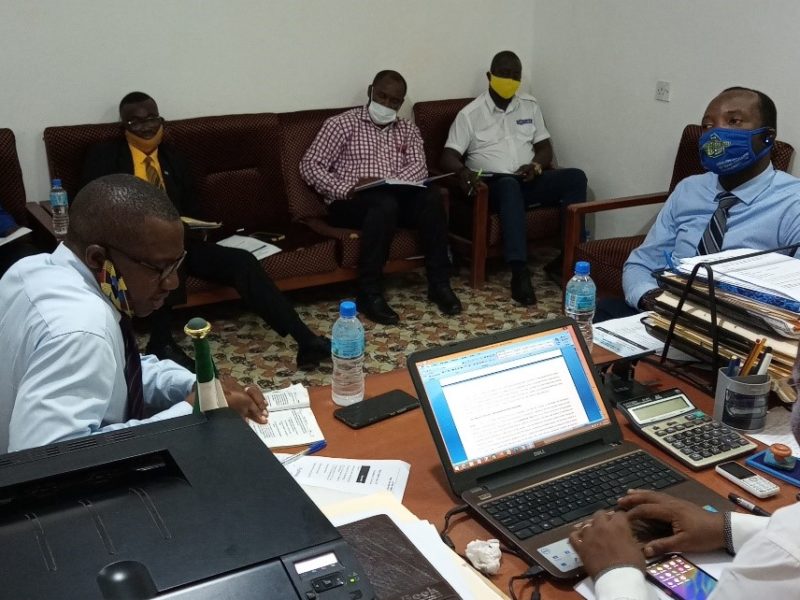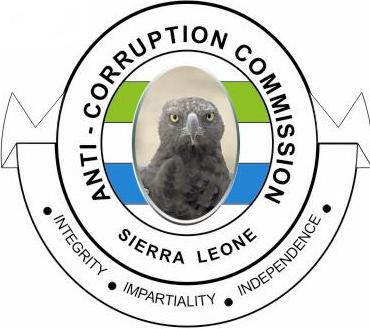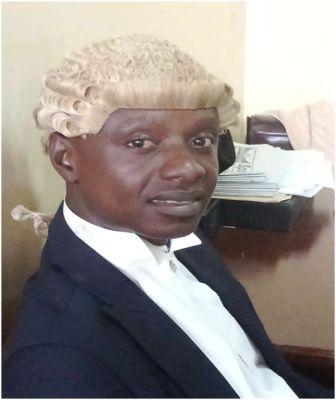GST and the exceptional areas
The socio-economic and even political development of a given country should be seen as a collective responsibility on the part of citizens of a given state, not least Sierra Leoneans. When we sometimes tend to compare Sierra Leone to other countries in the sub region in terms of development, we should be doing that in line with our preparedness to contribute to the development we expect.Â
Our development strides as a nation should go in line with our willingness to support state institutions. Some few days back, I wrote that the National Revenue Authority (NRA) is one of major components, responsible for the growth of Sierra Leone, both in terms of economic and social standpoints. And that despite the seeming challenges ahead of the authority in terms of ensuring people comply with tax payment, the Authority has been working towards meeting the dream of President Koroma. The NRA is key to President Koroma’s Agenda for Change.
Some forty-eight hours ago, I was faced with the task of justifying why the introduction of the Goods and Services Tax is relevant to Sierra Leone’s development agenda, and that was on UN radio, where I, together with colleague journalists discussed a whole range of issues highlighted by the media last week. I did my best to give out justifications on the need for the current Goods and Services Tax, not just as a journalist, but as a patriotic Sierra Leonean. Â
I am also attempting to do that today, after several articles I had written on the positive side of the GST. In the first place, the introduction of the GST came about following the decision by government to harmonize the tax system in the country; before now, there used to be seven different taxes, such as Entertainment TAX, Hotel and Accommodation Tax and Message Tax among others. These seven taxes have now been brought under one umbrella, known as the Goods and Services Tax, also known as Value Added Tax in other countries like Ghana.
Let me also state that the commencement of the GST should have been 1st September last year, but because the government listens to the concerns of the people, it was moved to January 1st this year, after a representation was made to the government by stakeholders that the introduction of the tax be delayed .. As I have stated over and over again, the Goods and Services Tax is not a new form of taxation, but instead, a replacement of seven existing taxes in the country.Â
With the introduction of the Goods and Services Tax, there has now been created by the tax administration body, an enabling tax environment for the taxpayer. So, in essence, GST is not a super imposition on the existing tax structure, but a replacement for these taxes listed above. Also, this system of taxation leads to a much more accountable and transparent way of doing business. Section 95 of the GST Act provides for the maintenance of accounts and records. It states that ‘every taxable person shall maintain in Sierra Leone such accounts, documents, and other records, including records referred to in section 36 as required under this Act or under any other enactment relating to the administration of this Act and the accounts, documents and records shall be maintained by the taxpayer for 6 years after the end of the tax period to which they relate.’ This is good at least for the businesses registered for the GST.
There are other potential benefits that would attract business people to comply with GST and they include, but not limited to, a GST registered business enjoys the benefit of getting back the GST incurred on impute purchases by deducting it from the output they charge on to their customers. It will also lead to a positive standard in terms of record keeping and at the same time, ensures transparency in business practices, better planning and helps to strengthen internal controls within a business setting.
Again, it is of relevance to inform the public that with the introduction of the Goods and Services Tax, we shall still continue to pay income tax because, in Sierra Leone, there are two broad categories of taxes-direct and indirect taxes; direct tax is the class of taxes levied on incomes and earnings. It is an obligation on every citizen to pay tax on incomes and earnings
GST, like the former sales and other taxes on goods and services, will be collected by businesses that are actually registered with the NRA to serve as agents on behalf of the Authority. These businesses will charge tax on all their sales, taxable under the laws of the Goods and Services Tax. It should be noted that the registered business is also charged GST by other GST registered businesses from whom taxable purchases are made.
The GST does not cover all others; it has areas referred to by Section 12 of the GST Act as exempt, provided for individuals, organizations and businesses set out in the Third Schedule of the Act; they are relieved from payment of GST. These exempt include, among others; Land, buildings and public works, and the description for this include; Â Â (a) Land and buildings; the granting of assignment or surrender of an interest in land or buildings: the rights to occupy land or buildings ;( b) Civil engineering public works. It also includes Machinery and the description includes, apparatus and appliances designed for use exclusively in–(a) agriculture, veterinary, fishing and horticulture, (b) manufacturing, and(c) mining, and classified as exempt under the Harmonized Systems Commodity Classification Code. Export of all minerals is also an exempt under the GST Act and the description for export of all minerals covers export of all minerals including rutile and its by-products, iron ore, bauxite, gold and diamonds. Funeral services and coffins, which covers the preservation, burial and cremation of a human corpse and Coffins is an exempt under the GST law.
There are several other exempts under the GST law; like education services and the description for this include;Â tuition or instruction for students provided by an institution duly registered or licensed by the appropriate institution being–(a) a pre-primary, primary or secondary school;(b) a technical college, community college or university;(c) an educational institution established for the promotion of adult education, vocational training, improved literacy or technical education;(d) an institution established for the education or training of physically or mentally handicapped persons;(e) and published by the Minister responsible for education in the Gazette.
Also, supply for Medical services and pharmaceuticals like s mosquito nets; and a list of drugs approved and published in the Gazette by the Ministry of Health for treatment of malaria, HIV-AIDS, leprosy, tuberculosis, snake bites, rabies and laser fever and condoms. Crude oil and hydrocarbon products are also an exempt under the GST Act 2009. And the description for this includes; petrol, diesel, liquefied petroleum gas, kerosene and residual fuel oil, bitumen but excluding lubricating oils. Financial services like the provision of insurance; dealing in money (including foreign exchange) provision of credit; operation of any bank but excluding fees and similar charges for non intermediation services including transfers, professional advice such as accountancy, investment and legal; and safekeeping services, are all exempt under the GST .And which is an indication that government is sensitive to the plights of the ordinary Sierra Leoneans.
Also, Section 15 of the Act provides that the registration ‘threshold n is a GST –exclusive turnover of taxable supplies in any twelve months period exceeding Le200, 000,000…’ This is a clear indication that, most business houses have no dealing with the GST, especially the common man along Abacha Street.Â
Section 41 of the Act provides for refunds of GST. Subsection states that ‘ If the calculation under section 27 results in a negative amount of GST payable because the total input tax credits allowed in the tax period exceed the total output tax payable for the tax period–(a) the excess is carried forward and allowed as an input tax credit in the following tax period and any remaining amount not credited in that period is carried forward to the next tax period, and this process continues until either—(i) no amount remains; or(ii) the amount or part of it, has been carried forward until taxable activity ceases, or deregistration is granted by the Commissioner-General ; and(b) any amount standing on credit at the time that the taxable activity ceases or deregistration is granted by the Commissioner-General, on application in the prescribed form and manner shall be refunded to the person within 2 months after the date of the application.
Subsection further states that; Notwithstanding subsection (1), the Commissioner-General shall refund an excess within 2 months after lodgment of the GST return for the tax period if, considering the person’s turnover or predicted turnover from supplies made or to be made during the period of 12 months consisting of the current month, the previous 5 months, and the following 6 months—(a) 50 per cent or more of the person’s turnover’s from supplies that are zero-rated exports under the First Schedule; or(b) 50 per cent or more of the person’s expenditure on inputs is from acquisitions or imports that relate to making supplies that are zero-rated exports under the First Schedule. This is a potential benefit for the GST registered business, and enough justification for the businessman to accept the GST, especially for the sake of national development.
But in all of these, there are challenges, which the NRA is aware of, but these are challenges that could be handled. The aspect of public education is relevant to the success of a given institution; not least the NRA. It has, as a matter of fact undertaken several public education drives on not only the GST, but on other activities. Indeed, it will continue with the public education drive it has always had on its duties and functions.
Sierra Leone is a donor-driven nation, and just as stated by Hon Mathew Nyuma, in an interview with Concord Times of May 2008. Â Therefore, for us to come out of this donor dependency syndrome, we should be prepared to pay our taxes to government, who in turn within provide us with the needed services. It has been difficult for the public to accept GST but it should, and it has to do with national development.
Stay with Sierra Express Media, for your trusted place in news!
© 2010, https:. All rights reserved.








Hamza Bangura
/
Pa. Baimba Sesay, I have gone through the series of articles you have published in this medium and to be very candid Sir, I am impressed with the kind of professionalism you have demonstrated in your office as a real patriot.
10th January 2010I have been away from Sierra Leone since 2003 and what I have learned from countries I have visited is “Patriotism” and that includes contributions citizens of those countries are enthusiastic about to bring about development.
The simple fact that there are other Sierra Leoneans that are not willing to embrace ideas of development normally makes me feel as if it is a historical curse that has been levied on our country. Let every Sierra Leonean realize that we have suffered a lot and it is high time we come together as patriots to place poverty as the worst disease that has caused mayhem in our land.
Let us support and pray for our current leader Dr. Ernest Bai Koroma for Allah/God’s guidance to implement his clear vision that he has outlined for our beloved nation, because if my memory will serve me well, this is the first time in Sierra Leone history that we have got a leader with an agenda he refers to as an “Agenda for Change”.
Pa. Sesay I just want to confirm to you that I am now optimistic that if this leader is supported and prayed for, we will once more come back to our past glory. A clear minded thinker will never expect this president to make Sierra Leone turn into Singapore or Botswana but what makes me positive is the fact that our president has given more powers to the ACC, and now, although the bad act is still going on, there has started to be fear amongst officials that no matter how big you are, Tejan Cole is your superior and he may ask you at anytime of the day… Tejan Cole, we support you and hope you will make our beloved land a better place to live.
Hamza Bangura, President, General Union of African Students in Tianjin (GUAST)-P.R.China
Pingback:GST and the exceptional areas | Sierra Express Media | Drakz News Station
/